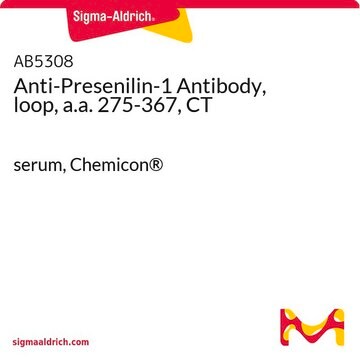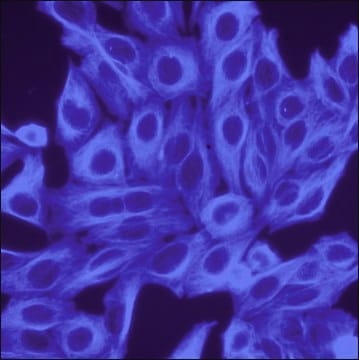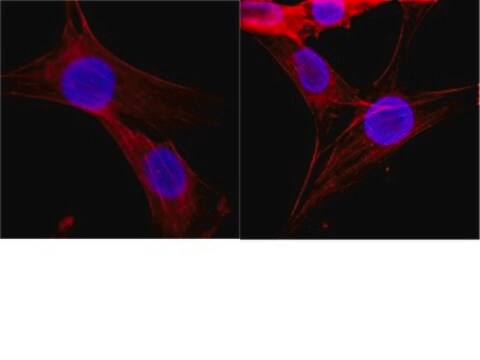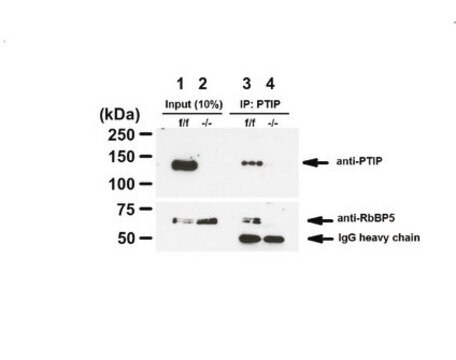ABE1321
Anti-MBD6
from rabbit, purified by affinity chromatography
Synonyme(s) :
Methyl-CpG-binding domain protein 6, Methyl-CpG-binding protein MBD6
About This Item
Produits recommandés
Source biologique
rabbit
Niveau de qualité
Forme d'anticorps
affinity isolated antibody
Type de produit anticorps
primary antibodies
Clone
polyclonal
Produit purifié par
affinity chromatography
Espèces réactives
mouse, human
Conditionnement
antibody small pack of 25 μg
Technique(s)
immunocytochemistry: suitable
immunohistochemistry: suitable (paraffin)
western blot: suitable
Numéro d'accès NCBI
Numéro d'accès UniProt
Modification post-traductionnelle de la cible
unmodified
Informations sur le gène
human ... MBD6(114785)
Description générale
Spécificité
Immunogène
Application
Immunohistochemistry Analysis: A 1:250 dilution from a representative lot detected MBD6 in human skin and human stomach tissue sections.
Epigenetics & Nuclear Function
Qualité
Western Blotting Analysis: 1 µg/mL of this antibody detected MBD6 in SH-SY5Y cell lysate.
Description de la cible
Forme physique
Stockage et stabilité
Autres remarques
Clause de non-responsabilité
Vous ne trouvez pas le bon produit ?
Essayez notre Outil de sélection de produits.
Certificats d'analyse (COA)
Recherchez un Certificats d'analyse (COA) en saisissant le numéro de lot du produit. Les numéros de lot figurent sur l'étiquette du produit après les mots "Lot" ou "Batch".
Déjà en possession de ce produit ?
Retrouvez la documentation relative aux produits que vous avez récemment achetés dans la Bibliothèque de documents.
Notre équipe de scientifiques dispose d'une expérience dans tous les secteurs de la recherche, notamment en sciences de la vie, science des matériaux, synthèse chimique, chromatographie, analyse et dans de nombreux autres domaines..
Contacter notre Service technique








